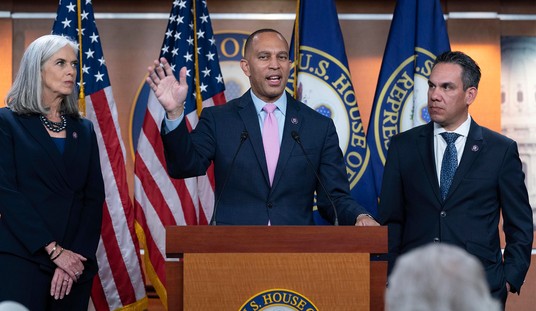Missouri has a storied history of…complicated US Senate races. In 2000, then-Governor Mel Carnahan (a Democrat) was vying for the Senate seat held by John Ashcroft (a Republican, who would subsequently be appointed as Attorney General by George W. Bush.) Tragically, Mel, his son, Randy, and his chief of staff, Chris Sifford, were killed in a plane crash on October 16, 2000. Just three weeks before the election (set for November 7, 2000), there arose an immediate question as to what would happen with the Senate race.
Under Missouri Law, Carnahan’s name could not be removed from the ballot. Carnahan’s Lt. Governor, Roger Wilson (full disclosure — I interned for Roger my final semester in college), became governor and promised to appoint Carnahan’s widow, Jean, to the seat in the event that Carnahan won — which he did, by two points. (As an aside, anyone who contends Missouri voters were goobers who unwittingly elected a dead man to the Senate is full of hooey. The vast majority of voters were well aware of what had transpired and that Jean Carnahan would fill the seat until a special election could be held. You’d have had to be living under a rock at the time not to know, given the amount of coverage it received.)
So, Jean Carnahan served as senator until the special election in 2002, in which she was defeated by Republican Jim Talent. (Further aside — brilliant mind with great foreign policy chops.) Talent was then beaten in 2006 by our “friend” Democrat Claire McCaskill, who then, in 2012, touted Republican Todd Akin’s “uber-conservative” record during the primary (which had the desired effect of shoring up his GOP support) and then parlaying his awkward foot-in-mouth moment into a victory, despite the fact that Missouri was trending “red,” by that point. Akin received the GOP nomination that year following a contentious primary, in which he faced off against former State Treasurer Sarah Steelman and businessman John Brunner. It is, in part, with that contested primary in mind, that the Missouri Legislature is now making a move to head off the perils of a crowded GOP primary at the pass.
Missouri Republicans have been burned by a divided primary field before. In 2012, then-Rep. Todd Akin (R) won the GOP primary with just 36 percent of the vote ahead of former state Treasurer Sarah Steelman (R) and businessman John Brunner (R) — and with the help of then-Sen. Claire McCaskill (D), who took the unusual step of advertising against Akin during the primary, labeling him the “most conservative” candidate in the race, a de facto boost ahead of an election in which each candidate was trying to paint themselves as the most conservative.
Following Roy Blunt’s semi-surprising announcement that he did not intend to run for re-election in 2022 to the seat he’s held since 2011, there was rampant speculation as to who among the GOP might vie to be his replacement and join Josh Hawley in D.C. Former Missouri Governor Eric Greitens (who resigned in 2018) was the first to announce his bid. Attorney General (succeeding Hawley in that role) Eric Schmitt has also declared that he is in. Other rumored contenders include US Representatives Ann Wagner, Jason Smith, and Billy Long, the aforementioned John Brunner, and…Mark McCloskey.
I’ll save my detailed objections to a couple of those contenders for another day. The point here is that the GOP has a legitimate concern that a crowded and hotly-contested primary may result in a less desirable candidate capturing a plurality of the primary vote but then struggling to consolidate the requisite support for a victory in the general election. (Keep in mind, as red as Missouri is, we had several statewide Democrat officeholders as recently as 2016, and a Democrat Senator until 2018.)
Put more bluntly (no pun intended), the concern is that the more “traditional” GOP contenders will split much of the GOP vote and Greitens, with his name recognition and misplaced empathy for him due to Kim Gardner’s shenanigans (that Gardner’s crusade against him was politically motivated and unjust doesn’t negate the many other negatives he brings) will garner enough support to secure the nomination with a plurality — and then be defeated in the general due to all of his baggage.
Enter state Senator Bill Eigel (of whom I happen to be a constituent). Eigel has introduced a measure that would move the primary forward two months (from August to June), and allow for a runoff between the top two vote-getters. Notes The Hill:
State and national Republicans are concerned that if Greitens captures their nomination, Democrats would have a shot at winning a Senate seat that should otherwise reside safely within the GOP column.
“If Greitens is the Republican nominee, Democrats have a shot at this Senate seat,” said Gregg Keller, a senior Republican strategist in Missouri who has not picked a candidate yet.
Whether the Senate would get the bill across the finish line in the waning hours of the session was debatable. And, in fact, it appears that the Senate adjourned early after things got extra chippy:
#MOLEG UPDATE: Democratic anger over how they have been treated in the Missouri Senate has boiled over into an abrupt adjournment, bringing the 2021 session to a screeching halt and leaving major legislation in limbo.https://t.co/dwMV34M7UC
— St. Louis Public Radio (@stlpublicradio) May 14, 2021
In fact, a brief perusal of the #MoLeg hashtag on Twitter this afternoon yielded this impression of how things were going:
#moleg pic.twitter.com/8UAzn7cRA8
— Deborah Kring (@d_huebert) May 14, 2021
(It bears noting that the GOP holds a super-majority in both houses. And yet…)
At this point, it’s not looking terribly promising for Eigel’s proposal. Whether this is something that can get done in a special session remains to be seen. In either event, I expect the next 12-15 months for the MO GOP to be…lively. Stay tuned!














Join the conversation as a VIP Member